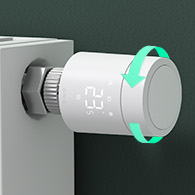Hi guys thanks for all the information, a few of you are talking about looped or not looped, we are not looped and I have contacted our DNO and they are happy to also upgrade for free our current 80amp fuse to 100amp. The 6mm cable coming from the house consumer unit to the garage is approx 15m- 20m in length.
I totally understand that my unit in the garage will need to be upgraded in order for the installation to take place, you guys also talked about moving my garage supply to a non rcd circuit with the consumer unit, I presume this is pretty straight forward. I also presume upgrading that circuit to 40A would also be required.
Ok just to clarify the charger I am looking at is the Andderson A2, I have posted a link below, it is the 7kw version.
https://andersen-ev.com/products/andersen-a2/
Thanks again all and keep the posts coming.
I totally understand that my unit in the garage will need to be upgraded in order for the installation to take place, you guys also talked about moving my garage supply to a non rcd circuit with the consumer unit, I presume this is pretty straight forward. I also presume upgrading that circuit to 40A would also be required.
Ok just to clarify the charger I am looking at is the Andderson A2, I have posted a link below, it is the 7kw version.
https://andersen-ev.com/products/andersen-a2/
Thanks again all and keep the posts coming.



